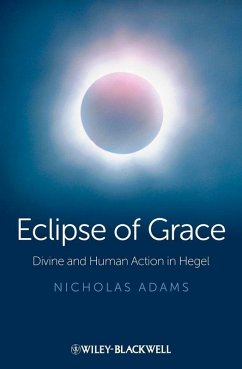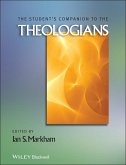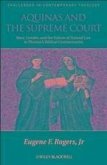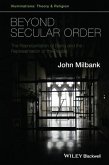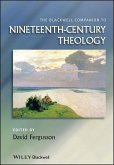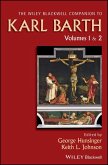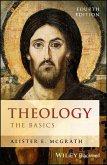Dieser Download kann aus rechtlichen Gründen nur mit Rechnungsadresse in A, B, BG, CY, CZ, D, DK, EW, E, FIN, F, GR, HR, H, IRL, I, LT, L, LR, M, NL, PL, P, R, S, SLO, SK ausgeliefert werden.
"A formidably good book, and one of the best pieces of theologically-interested work on Hegel to appear in recent decades. Written with calm confidence and independence of mind, it enables students of Hegel to identify and undo persistent misconstruals of his philosophy, and shows by example how they might more profitably go to work on Hegel's texts. Read at a good slow pace, the book is a conversation with an excellent teacher who unties knots in one's mind and teaches one how to read and think well."--John Webster, King's College, University of Aberdeen
"A marvelously lucid and pedagogically canny study of the uses to which Hegelian thought can be put in theology ... With consummate analytic rigor, Adams patiently analyzes selected passages from the Phenomenology, as well as from Hegel's logical works and his Lectures on the Philosophy of Religion. The interpretations are uniformly illuminating and some are quite brilliant."--Cyril O'Regan, University of Notre Dame
"Although approached through the care and modesty of closely reading of some key passages in Hegel's oeuvre, this study not only offers an exceptionally lucid account of Hegel's thinking, it is nothing short of a major re-evaluation. At last, Hegel's contribution to philosophical theology receives the treatment it deserves with both elegance and intelligence. A genuine achievement!"--Graham Ward, University of Oxford
"Nicholas Adams has produced a ground-breaking book that charts a clear course through the philosophical morass of Hegel's main works and discovers in Hegel's system of logic - more so than in his explicitly "theological" writings - much that is of value for contemporary theology. While recognising that some of Hegel's writings are formidably difficult, especially for those without prior acquaintance with Spinoza, Kant or Fichte, Adams offers a helpful guide for surmounting these obstacles and makes a compelling case about why Hegel merits the serious scholarly attention of theologians." (European Journal of Theology, 1 October 2013)
"Summing Up: Recommended. Graduate students and researchers/faculty." (Choice, 1 January 2014)

